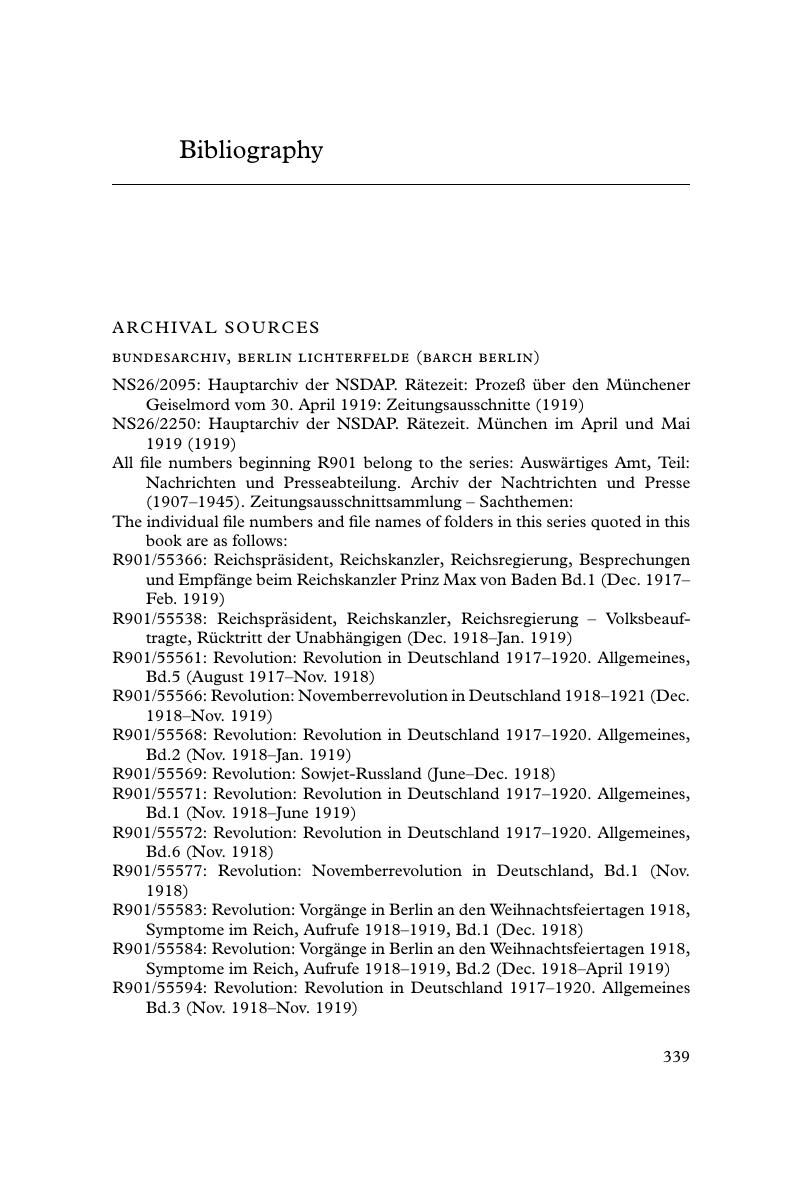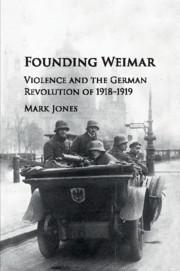Book contents
- Founding WeimarViolence and the German Revolution of 1918–1919
- Founding Weimar
- Copyright page
- Dedication
- Contents
- Figures
- Maps
- Acknowledgments
- Abbreviations
- Maps - PDF Only
- Introduction
- 1 La Grande Peur of November 1918
- 2 Karl Liebknecht and the Spartacist Threat
- 3 Terror and Order
- 4 The Edge of the Abyss
- 5 The January Uprising
- 6 Atrocities and Remobilization
- 7 Weimar's Order to Execute
- 8 Death in Munich
- Conclusion
- Bibliography
- Index
- References
Bibliography
Published online by Cambridge University Press: 11 October 2016
- Founding WeimarViolence and the German Revolution of 1918–1919
- Founding Weimar
- Copyright page
- Dedication
- Contents
- Figures
- Maps
- Acknowledgments
- Abbreviations
- Maps - PDF Only
- Introduction
- 1 La Grande Peur of November 1918
- 2 Karl Liebknecht and the Spartacist Threat
- 3 Terror and Order
- 4 The Edge of the Abyss
- 5 The January Uprising
- 6 Atrocities and Remobilization
- 7 Weimar's Order to Execute
- 8 Death in Munich
- Conclusion
- Bibliography
- Index
- References
Summary

- Type
- Chapter
- Information
- Founding WeimarViolence and the German Revolution of 1918–1919, pp. 339 - 365Publisher: Cambridge University PressPrint publication year: 2016

